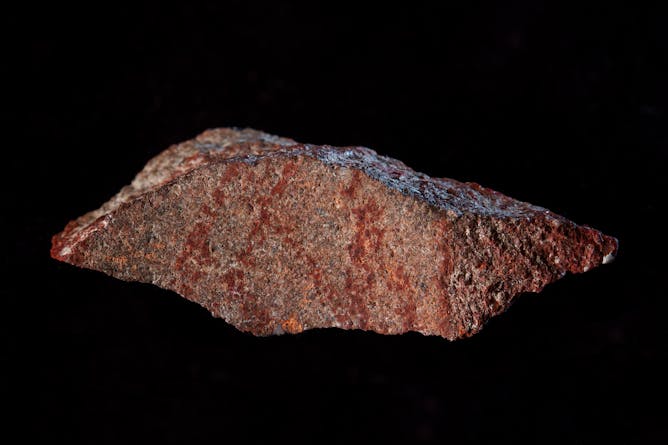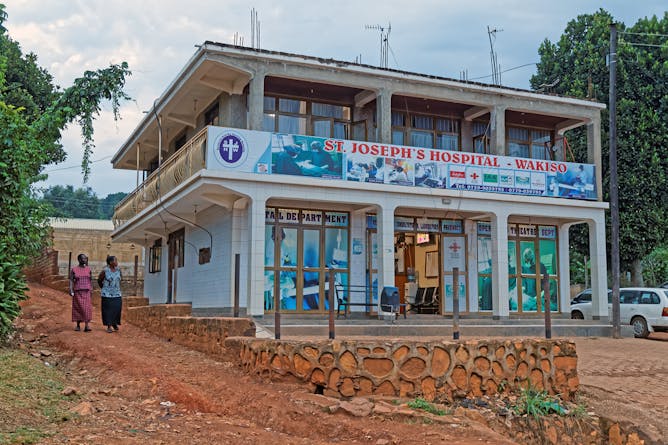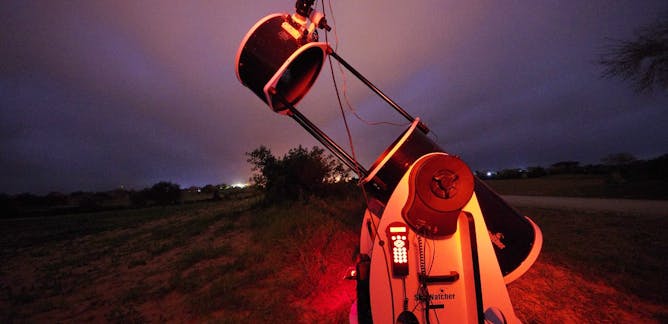|
A new discovery in Blombos Cave in South Africa’s southern Cape region suggests that our ancestors were drawing earlier than we thought. The find, a cross-hatched drawing made with an ochre crayon on a silcrete (stone) flake, is 73,000 years old. Christopher Henshilwood and Karen Loise van Niekerk explain the drawing’s significance.
Many medical emergencies in Africa end in tragedy because it’s difficult for patients to reach hospitals quickly. One of the reasons is that countries don’t have a database of where health facilities are. This means nobody has a clear idea of where they’re located and which communities they serve. Paul Ouma and Emelda Okiro addressed this by creating the first ever database of hospitals in sub-Saharan Africa.
|

The drawing found on silcrete stone in Blombos Cave.
Craig Foster
Christopher Henshilwood, University of Bergen; Karen Loise van Niekerk, University of Bergen
A new discovery adds to our existing understanding of Homo sapiens in Africa.
|

A small hospital in Wakiso district in the central region of Uganda.
Shutterstock
Paul Ouma, Kenya Medical Research Institute; Emelda Okiro, Kenya Medical Research Institute
Only 16 out of 48 African countries and islands have access to hospital services within the WHO's two-hour time threshold.
|
Politics + Society
|

Mark Lacy, Lancaster University
Young people raised their voices in the streets and online – but a government crackdown seeks to silence them.
| |

Brendon O'Connor, University of Sydney
Since the arrival of Barack Obama on the political scene, non-Americans have taken a much greater and more sophisticated interest in US politics.
|
|
|
Science + Technology
|

Katharine McKinnon, La Trobe University
Once artificial intelligence takes over task-based and calculative jobs, the invisible care work that underpins our offices, marketplaces and institutions could finally become more visible and valued.
| |

David Baratoux, Institut de recherche pour le développement (IRD)
Senegal has made great strides in astronomy and planetary sciences in recent years.
|
|
|